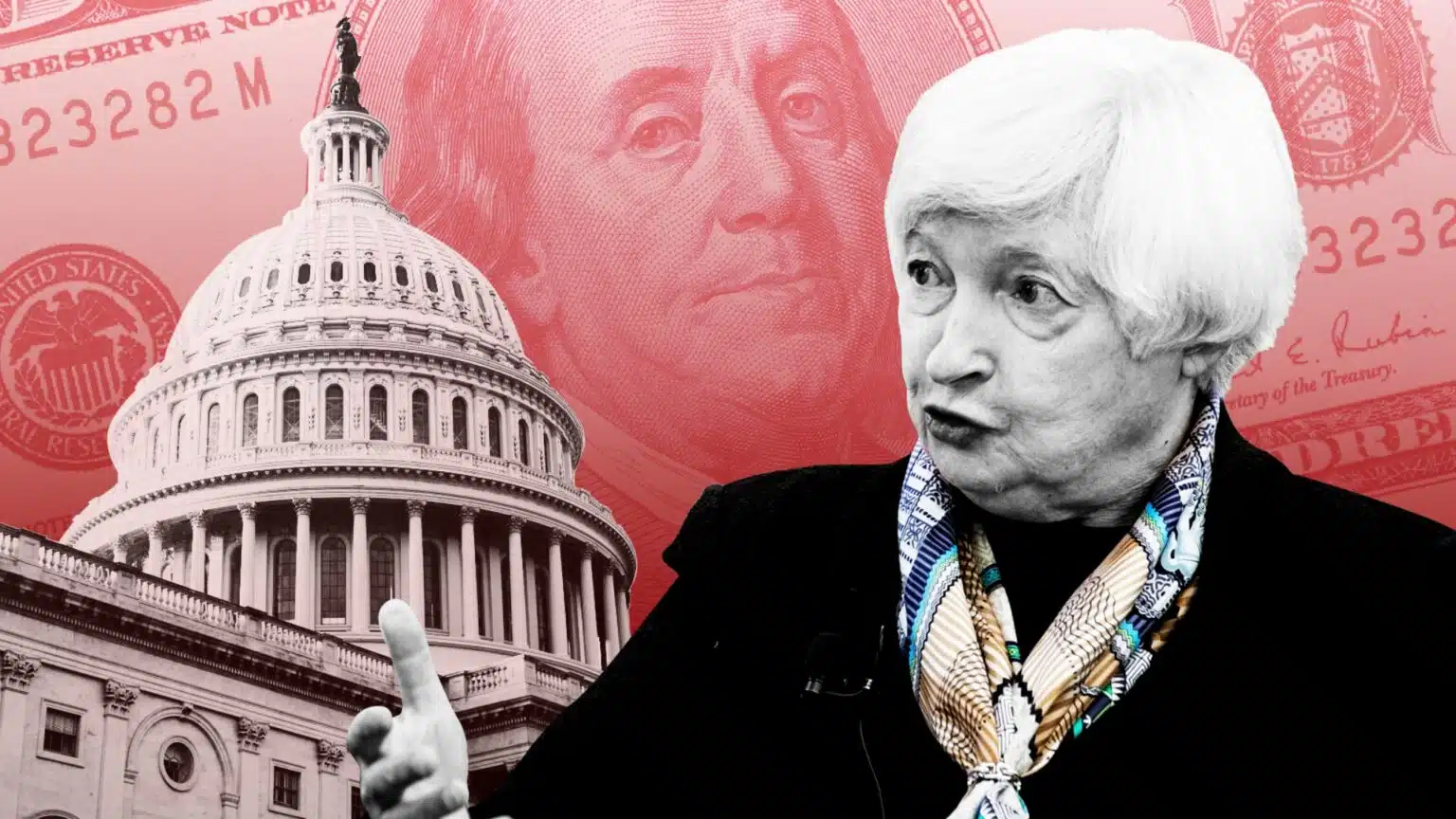Treasury Secretary Janet Yellen has informed the Congress that the United States is projected to hit the debt ceiling as early as 1st June, if debt limit is not raised or suspended before then.
U.S. could default on its debt payment by June 1, if the legislators do not raise or suspend the country’s borrowing authority before the deadline. This has the potential to become a national crisis.
Ms. Yellen has requested the house and senate leaders to protect the full faith and credit of the United States by taking steps as soon as possible.
She has informed that it is impossible to predict the exact date when United States will run out of cash.

She said that past debt limit impasses has taught that to wait until the last moment to suspend or increase the debt limit can be harmful to businesses and consumer confidence, increase short-term borrowing cost for taxpayers, and have a negative impact on the credit railing of the United States.
The Congressional Budget has also seen that the United States is at the greatest risk of running out of money by early June.
“Extraordinary measures” of the United States Treasury
CBO director Phillip L. Swagel informed that the “extraordinary measures” of the Treasury will be exhausted sooner than the previous prediction because of fewer than expected tax receipts being filed and the IRS having already processed all these returns.
Ms. Yellen had informed the congressional leaders in January that her department was already dipping into “extraordinary measures” to prevent a federal government default.

The Treasury informed the public on Monday that it plans to increase the borrowing limit for the April-June quarter of this year, although the federal government is close to its debt limit.
The United States has plans to borrow $726 billion this quarter, which is $449 billion more than what was predicted in January. This is because of lower than expected income tax receipts, higher spending, and a lower beginning-of-quarter cash balance.
The Russian invasion of Ukraine has already been a burden to the United States’ economic growth.
Greatest risk to the U.S. economic position
The acting assistant secretary, Eric Von Nostrand, has reported that even if Congress increases the debt limit, the resulting uncertainty will increase borrowing costs and induce other financial problems that would weaken the labour market and our position in the world.
Shai Akabas, director of economic policy at the Bipartisan Policy Centre, has warned that there is no time to waste.
His organisation predicted the so-called “doomsday” when the government would exhaust all its resources. His organisation will provide further updates on this in the coming days.

The United States government is again extremely close to failing to make good on all its obligations. This is not expected from a country that is considered the bedrock of the financial system.
The Democrats and the White House are pushing for Congress to increase the debt limit. Congress has to vote to increase or suspend the debt limit.
The Republicans have recently passed a bill to protect spending cuts in exchange for an increase in the debt limit.
Biden and top lawmakers will discuss the debt limit on May 9
President Joe Biden wants an increase in the debt limit without any negotiations.
He has invited four congressional leaders to the White House to discuss the growing fears that the federal government might not be able to pay bills as of June 1.

Mr. Biden wants to stress the need for Congress to take quick action to avoid default. He will also discuss how to begin a separate process for passing a separate fiscal budget for 2024.
Economists are alarmed about the financial catastrophe that will take place if the government of the United States is unable to pay its bills. A default would plunge the United States and several other countries into a severe recession and cause damage to America’s financial credibility around the world.













